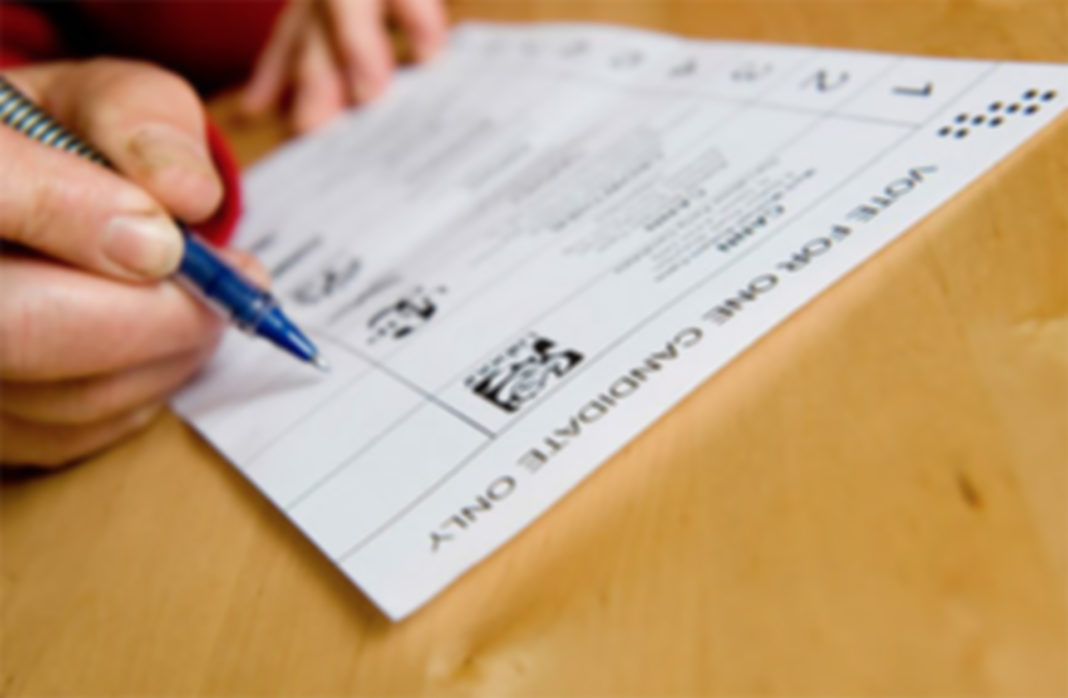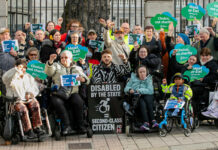It was heartening to see the Irish electorate send the far-right packing, and – for the most part – resist the siren call of racist dog-whistling, writes Donal O’Keeffe.
Presumably John Waters is emigrating again, just like he promised he would if the Eighth Amendment was repealed.
In 2017, the former newspaper columnist and Eurovision songwriter told the 2017 Renua annual meeting that he would leave Ireland if the repeal referendum passed.
“We either want abortion factories on our street corners, or we don’t. I don’t. I don’t wanna be here,” he said. “I will leave, I promise.”
The Twitter account @Newsworty_ie notes that Waters told RTÉ’s Brendan O’Connor in 2010 that he has a house in Spain. Presumably Spain would be Waters’ intended bolt-hole, although it would seem he hasn’t departed yet.
John Waters’ most recent book is called ‘Give Us Back the Bad Roads’, in which he yearns for the good old days before EU membership, an Ireland far closer to that of Eamon de Valera and Archbishop John Charles McQuaid. I couldn’t help but satirise it as ‘Give Us Back the Bad Priests’.
Waters stood in the Dun Laoghaire constituency in the General Election, under the far-right, anti-immigrant, non-party banner of former journalist Gemma O’Doherty’s ‘Anti-Corruption Ireland’, a grouping which espouses the ‘Great Replacement’ conspiracy theory that ‘global elites’ are causing white Europeans to be replaced by non-European people.
Just after midday on Election Day, last weekend, Waters tweeted a call to arms: “In 20 years, we may look back on Election 2020 as the moment we could’ve done something but didn’t or the moment we started to take our country back. Don’t store up regrets for yourself.”
We don’t know from whom Waters imagines we need to ‘take our country back’, and he as yet has not replied to my tweeted question “Is it the Blacks?”
It’s worth remembering that two years ago, Waters’ good friend, and fellow right-wing pundit, David Quinn of the Iona “Institute” tweeted: “Three words; President John Waters. (You heard it here first).”
Quinn also predicted “John Waters would pick up around 15pc of the vote”.
It didn’t quite work out like that, and the veteran polemicist actually polled 390 votes in Dun Laoghaire, or 1.39% of the vote, and was eliminated on the first count.
Waters reacted to his electoral drubbing with characteristic, er, style, tweeting: “The result of #GE2020 is like an alcoholic refusing to enter treatment saying he still had more drinking in him. It reminds me of the standard defence of petty malefactors in the District Courts: ‘He had drink on top of tablets, m’lud.’ It is truly, darkly mad.”
As writer Paraic O’Donnell put it, “In a surprising development, meanwhile, the vision of John Waters — of a homely theocracy with bad roads and no internet, mochas or gays — has failed to inflame imaginations in the country’s most liberal constituency.”
Over in Dublin Fingal, Gemma O’Doherty was eliminated on the fifth count, winning 1,252 first preference votes, or 1.9%. O’Doherty’s Trumpian Twitter reaction made Waters’ look downright gracious.
“The Irish have once again voted for rampant corruption, homelessness, squandering of their taxes, mass uncontrolled immigration, violent crime on their streets, destruction of their children’s futures, and #FFFGFO degeneracy. Their lives are about to get even uglier …
“Or else the vote is rigged, which is a strong possibility in a country where every public office is corrupt from top to bottom. Why is there no transparency? What have they got to hide?”
Other far-right groupings had similar bad days at the polling station.
The National Party and the Irish Freedom Party campaigned on what might best be called Euro-sceptic platforms, demanding controlled immigration, running candidates in 21 constituencies, in each receiving 2% or less of first-preference votes.
The National Party enjoyed its biggest first-preference shares in Longford-Westmeath (1%), Dublin North-West (1.5%) and Dublin South-Central (1.5%).
The Irish Freedom Party in Dublin Bay North scored 1.1%, Clare 1.2% and Cork North-West 2%.
Both parties polled below 1% of first-preference votes in 15 constituencies, many of their candidates being eliminated in the first and second counts.
Renua and Aontu won’t be too far ahead of them, and Peter Casey, God bless him, managed to lose badly in two different constituencies.
It should be noted, though, that two independent candidates, Noel Grealish in Galway East and Verona Murphy in Wexford, were both elected. Both of them have made dog-whistling anti-immigrant comments about asylum seekers and migrants in the past 12 months.
Fair Verona, the former Fine Gael by-election candidate – running as an independent this time out – was elected to the third seat in Wexford.
Speaking on RTÉ’s This Week programme last November, Murphy suggested that refugees should be ‘deprogrammed’ because they may have been ‘infiltrated by ISIS’.
Depressingly, independent candidate Noel Grealish was elected to the second seat in Galway West. Last year, Grealish was accused of “disgraceful racism” after he asked in the Dáil about money being sent out of Ireland by foreign nationals. As I suggested here a while back, it did Grealish no harm at all in the election.
It should never be forgotten that in 2004, the coalition government of Fianna Fáil and the Progressive Democrats – the party Noel Grealish would disband in 2009 – championed the Twenty-seventh Amendment to the Constitution, limiting the constitutional right to Irish citizenship of individuals born on the island of Ireland to the children of Irish citizens.
It was a horrible campaign, dominated by tall tales of pregnant women flocking to Ireland so their babies could claim Irish citizenship. The Irish Human Rights Commission, a statutory body, described such claims as ‘vague or anecdotal’.
Fianna Fáil and the PDs’ 27th Amendment, supported by Fine Gael, was opposed by Labour, the Green Party, Sinn Féin, the Socialist Party, the SDLP, the IHRC and the Irish Council for Civil Liberties.
With the referendum timed to coincide with local and European elections, some argued the FF-PD Government was exploiting prejudice to boost its own political interests. As it happened, Fianna Fáil suffered a richly deserved hammering, losing 129 local councillors.
Turnout was 60%, and the referendum was passed by 79.17%.
It was a dispiriting moment for those of us who opposed the amendment to see just how easily our country could be swayed toward utter racism. Still, in 2020, it’s heartening to remember that this time out, at least, only a tiny, tiny portion of the Irish electorate fell for anti-immigrant rhetoric.
Perhaps we’ve decided now that we’re better than that.
I hope so.
On Monday, of course, Gemma O’Doherty tweeted: “What a coincidence that every nationalist anti replacement candidate polled almost the same in #GE2020. This isn’t credible. The mafia cover up child murder and VIP paedophilia. Of course they will rig the vote.”








